Health
Mak and Karolinska to Continue Prioritising Sustainable Health
Published
1 year agoon
By
Mak Editor
Makerere University and Karolinska Institutet Sweden have embarked on undertaking strategies aimed at ensuring that sustainable health becomes a priority on the global agenda. This was revealed during a high level meeting involving Makerere University Management and a delegation from the Karolinska Institutet Sweden, held on Tuesday 6th February 2024 at the Rotary Peace Centre Board Room, Frank Kalimuzo Central Teaching Facility.
The Vice Chancellor, Prof. Barnabas Nawangwe welcomed the Vice President of Karolinska Institutet Prof. Martin Bergö and his delegation to Makerere University. Reflecting on Makerere University’s 100 year journey (1922-2022), the Vice Chancellor pointed out that the institution has been at the forefront of training human resources who have been key in the identification and finding solutions to various development challenges.
“Makerere is a very collaborative university. We have collaborations within Africa of course, most of our external collaborations are in Europe and the United States. Times Higher Education (THE) considers Makerere the most collaborative university on their database,” said Professor Barnabas Nawangwe.
Adding that; “We publish jointly with a professor at another university, more than any other university in the world, 167 MOUs signed in one year and quite a number of them are very active and particularly in the College of Health Sciences.”
Professor Nawangwe also expressed the government of Uganda’s support to the Makerere University’s research agenda through its funding commitments under the Research and Innovation Fund.“When the SIDA support was due to end, I accompanied the Swedish Ambassador to go and see our Minister of Education and Sports, who is our First Lady as well, and he told her, ‘Swedish support is going to end in two years. Is the government going to take over?’ And she said, ‘yes we shall.’ For the first time, the government committed an equivalent of about $8 million dollars every year for research at Makerere University. A lot of projects have been funded. There are more than 1,250 since the project started four years that have been funded. 39% of all the grants are going to health,” shared Prof. Nawangwe.
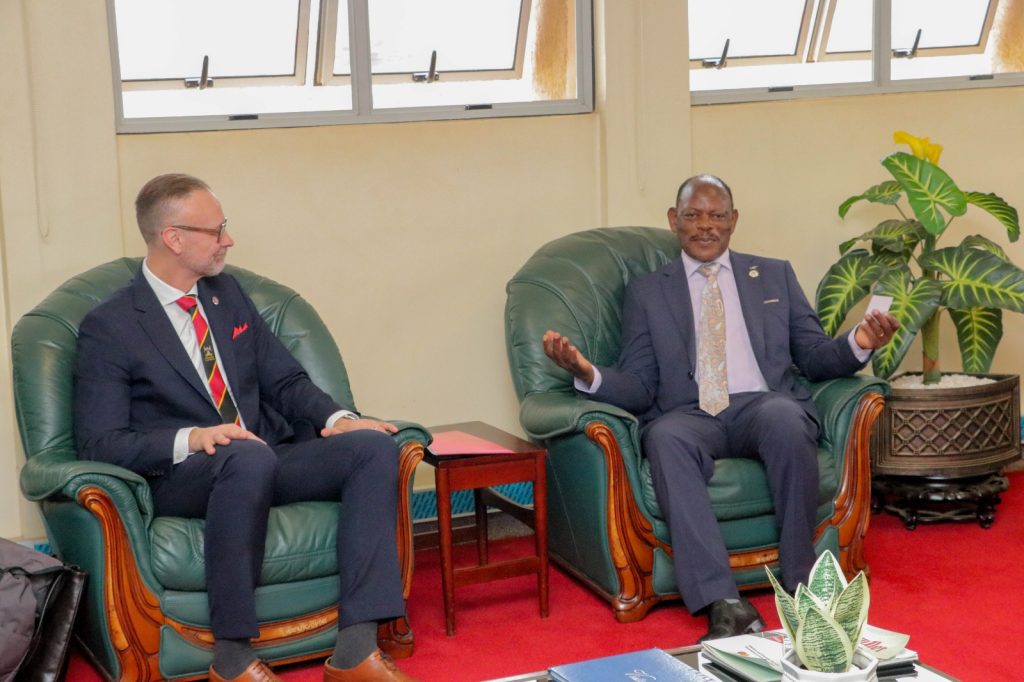
As Makerere University embraces the next century, Prof. Nawangwe said that partnerships with Karolinska Institutet will be leveraged to ensure that research in sustainable health takes centre stage. “Global Health is a major issue. The Centre for Excellence for Sustainable Health, which is a collaboration between Makerere University in Uganda and Karolinska Institutet in Sweden will be central in addressing global issues.”
In this regard, the Vice Chancellor implored the researchers at Makerere and Karolinska to explore bringing more academic disciplines on board including those in agriculture, food security, gender, architecture, to mention but a few, for a holistic approach. In the same vein, the Director of Research and Graduate Training, Prof. Edward Bbaale proposed the need to include smart energy options, climate change, nutrition as well as the environment into sustainable health. For instance, how do nutritionists contribute to sustainable health?
Prof. Tobias Alfvén, a Pediatrician and Researcher at Karolinska Institutet, and Co-Chair of the CESH Working Group, underscored the fundamental role of the longstanding 20-year relationship between the two institutions and the dedicated teams involved in facilitating this work. Reflecting on the genesis of their collaboration, he explains, “We met just a month before the pandemic hit Sweden and Uganda, and we started collaboration; everything went online, and we started developing what became the Centre of Excellence for Sustainable Health (CESH). Without that long-term thinking and the good team already there, we would not have achieved that.”
Prof. Rhoda Wanyenze, the Dean, Makerere University School of Public Health (MakSPH) and Co-Chair of the Centre’s Working Group informed the University Management and the visiting delegation that sustainable health involves humans, animals, and the environment. In this regard, the CESH has embraced a multi-disciplinary approach towards research by involving students from different disciplines. She pointed out that CESH has identified students from the College of Agricultural and Environmental Sciences (studying climate change) and those from MakSPH (Environmental Health Sciences) to form research teams that will provide solutions to global health issues.
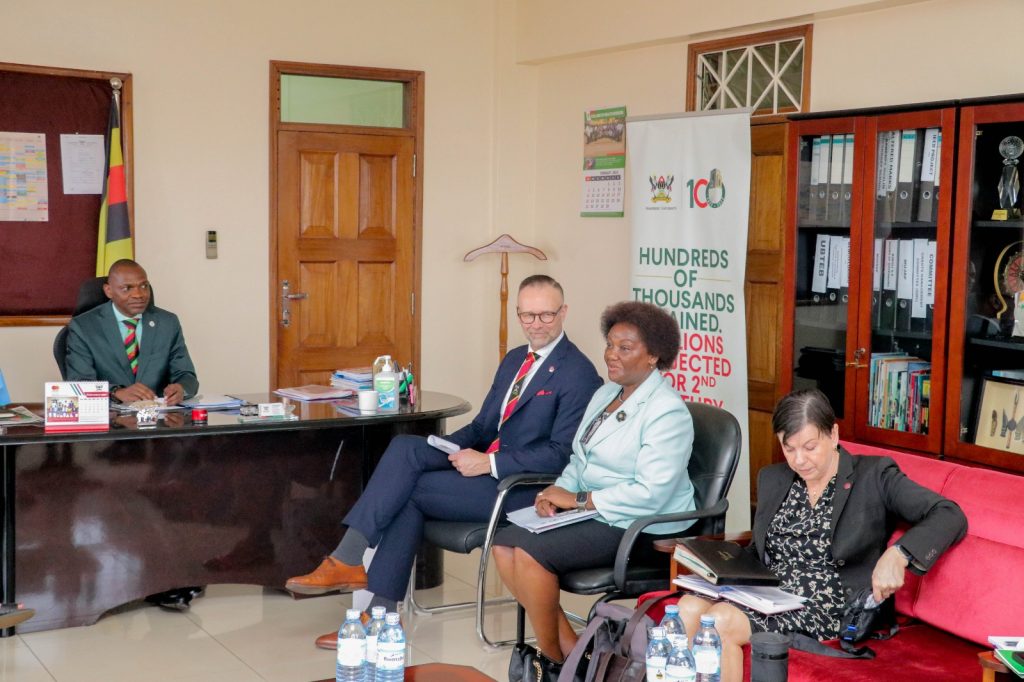
The CESH Working Group’s three-year commitment to promoting sustainable health practices was emphasized by Prof. Wanyenze who also reported a notable shift in focus toward sustainable health during sessions of the World Health Summit held last year.
“We can work together and learn from each other and we can bridge those gaps and the challenges that are leaving some of these vulnerable groups behind. It might be refugees’ issues in Uganda, it might be other disadvantaged groups within Sweden, but we can learn from one another and be able to reach out to them,” Professor Rhoda Wanyenze.
She added that; “When we are thinking about our health and wellbeing today, we should not have the health and well-being of future populations because there are many things we do today to keep ourselves happy and healthy that will affect those that are coming after us.”
Dr. Roy Mayega, an alumnus of Karolinska Institutet and a Senior Lecturer in the Department of Epidemiology and Biostatistics at MakSPH acknowledged Makerere University for valuing the partnership through funding research in sustainable health. He also pointed out that the research teams were discovering new issues such as gender and climate change in the realization of sustainable health.
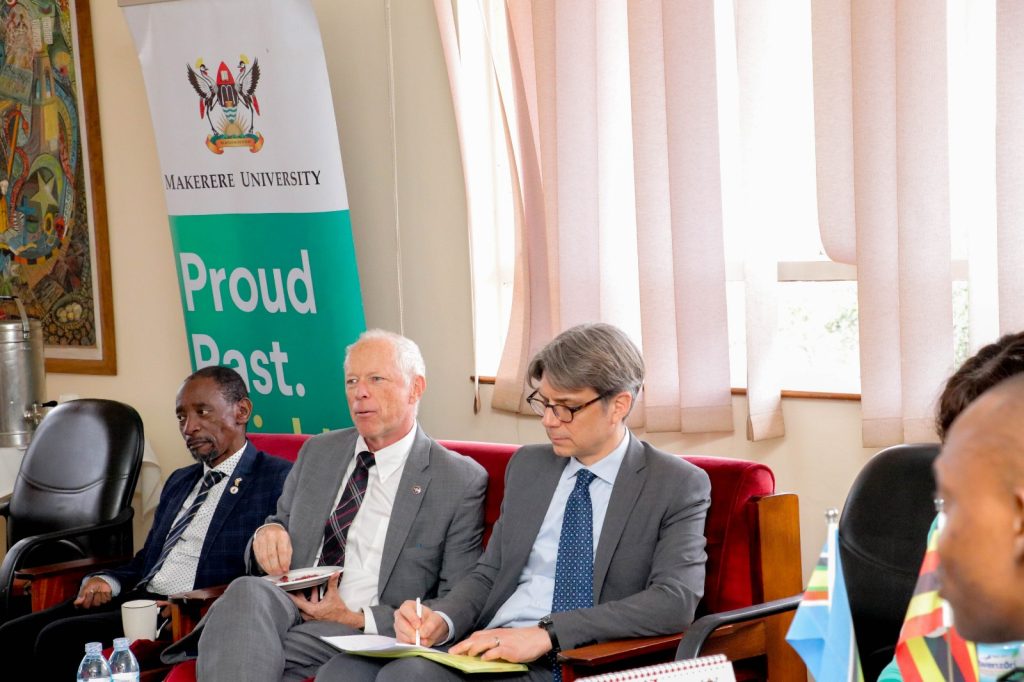
On behalf of Karolinska Institutet, Prof. Martin Bergö thanked the Makerere University Management for the warm reception and the commitment to sustainable health. He mentioned that this was his first visit to Uganda and Makerere University. Acknowledging the partnership between both institutions for the last 22 years, Prof. Bergö who is the current Chairman of the Centre of Excellence for Sustainable Health expressed delight at being part of this collaboration.
He noted that all crises, whether caused by pandemics, poverty, conflicts, or climate change, have an impact on both physical and mental health. He further noted that the link between human, animal, and plant health, known as “One health” increases the importance of collaborating and working together across borders and between different sectors of society.
Prof. Bergö nevertheless acknowledged that people are at the heart of collaborations. “However, partnerships are foremost between people”, he noted, before adding “Building equitable personal relationships and learning from one another. This is perhaps the most important objective of this visit!”
He commended CESH, whose evaluation of the first three years of operation 2021-2023 revealed that the Centre was well on its way to achieving the set objectives. CESH has to date developed four out of planned five tools for working with sustainable health, while the last one is being finalized. “The tools are being used in education and research and I am happy to learn that we are making an impact.”
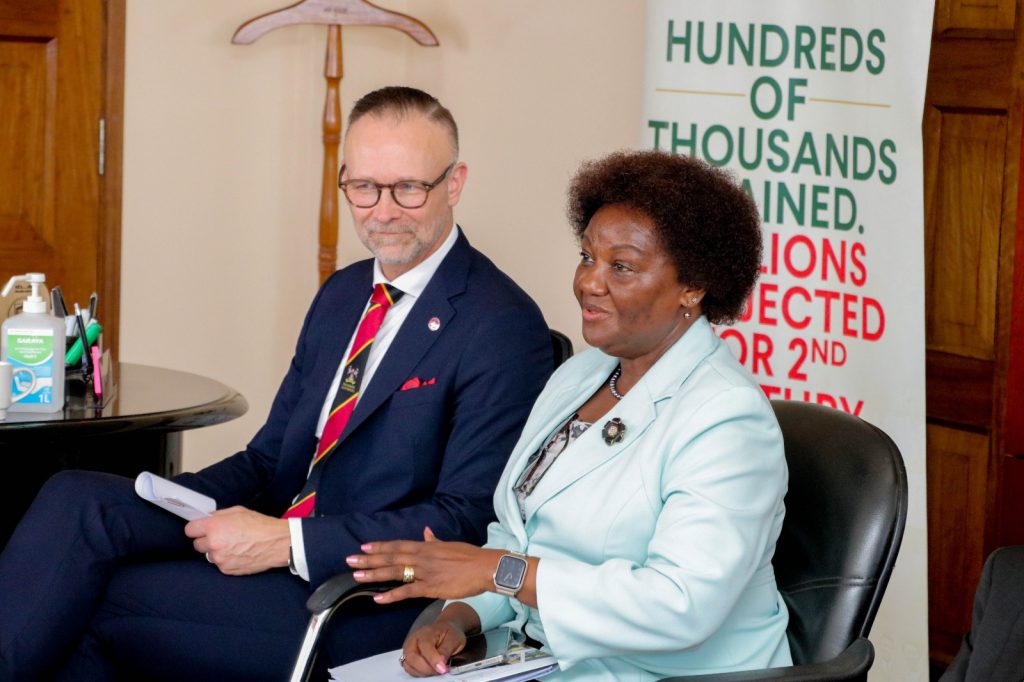
Prof. Bergö equally commended Prof. Barnabas Nawangwe and the former President of Karolinska Institutet, Prof. Ole Petter Ottersen on co-authoring a publication defining sustainable health. Other co-authors included Rhoda Wanyenze, Tobias Alfvén, Rawlance Njejjo, Nina Viberg, Roy William Mayega, and Stefan Swartling Peterson.
“I have read it with much interest and see myself as an ambassador for spreading the concept in different contexts. I am pleased to understand that this definition is the point of departure for all activities devised and carried out by the Centre of Excellence for Sustainable Health” he said, adding that the Karolinska Institutet President, Annika Östman Wernerson is looking forward to visiting Makerere University this November.
During this interactive meeting, both institutions underscored the role of the library in advancing research and preservation of knowledge. The Vice Chancellor, Prof. Barnabas Nawangwe pointed that the Makerere University Library serves as a national reference library as well as a legal and United Nations repository. He therefore acknowledged the support received from NORAD and Sida in the professionalization of library services and making it a model library in Africa. Prof. Bergö mentioned that libraries are the guardians of knowledge and thanked the Vice Chancellor for inviting the University Librarian to the discussion.
Makerere University Management Members who attended the meeting included: Deputy Vice Chancellor (Academic Affairs)-Assoc. Prof. Umar Kakumba, Director Research and Graduate Training-Prof. Edward Bbaale, Director of Quality Assurance-Dr. Cyprian Misinde, Academic Registrar-Prof. Buyinza Mukadasi, University Librarian-Assoc. Prof. Ruth Nalumaga, Deputy University Secretary-Mr. Simon Kizito, Head of Advancement Office- Mr. Awel Uwihanganye, and Principal Public Relations Officer-Ms Ritah Namisango
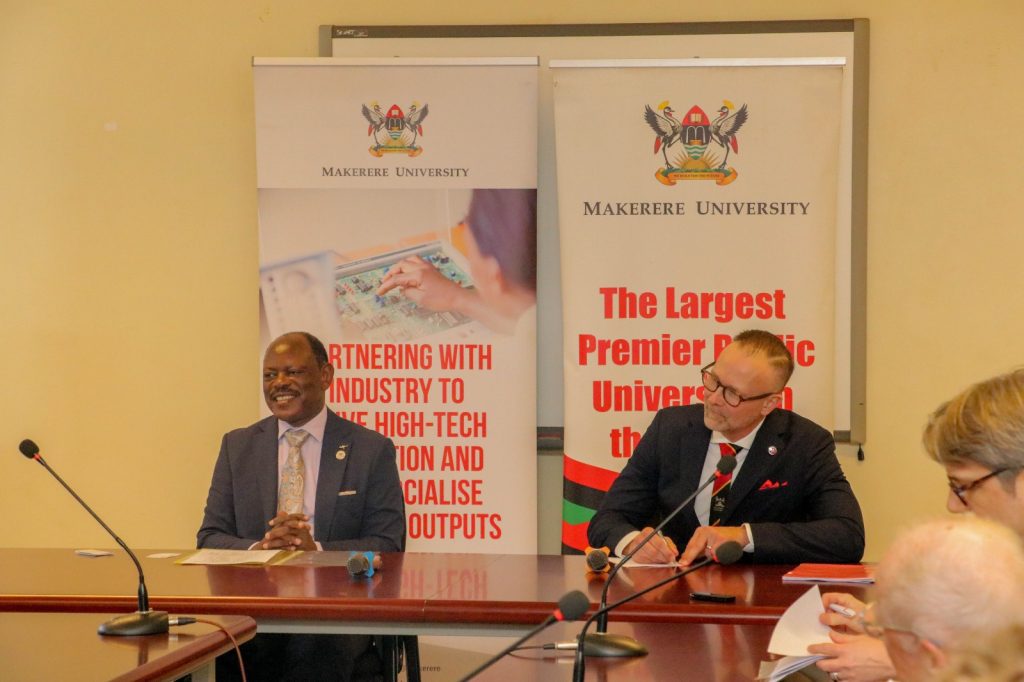
The Karolinska Institutet delegation included; Head of the International Office-Erika Dabhilkar, Co-chair of CESH-Tobias Alfvén, International Coordinator-Monika Berge-Thelander, Project Coordinator-Nina Viberg, Member of CESH Steering Committee-Stefan Peterson Swartling, and Communications Officer-Kseniya Hartvigsson.
Teams Visit the Swedish Ambassador’s residence
While hosting the two institutions, H.E. Maria Håkansson, the Ambassador of Sweden to Uganda, emphasized the significant ties between the two nations and their respective peoples as key drivers for this 22 year-old partnership.
“Collaboration between Karolinska and Makerere is still one of the most important international flagships. Which I think says a lot of what has been built and what the relations that have been creating between institutions but of course also between people. Also, we all know individually what role the university researchers play in the country’s policy development,” said Amb. Håkansson
Adam Kahsai-Rudebeck, First Secretary – Deputy Head of Cooperation Health and Social Protection at the Swedish Embassy added “We look forward to just building upon the already established relationships and initiatives that are ongoing.”
A Video Highlighting the Visit
Photography and Video by Davidson Ndyabahika
You may like
-
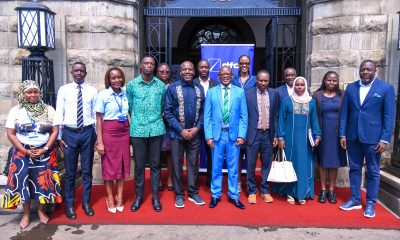

Makerere University, DFCU Bank Sign MoU to Advance Innovation, Student Leadership and Research
-
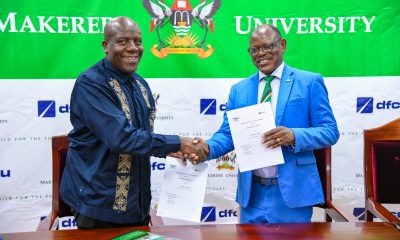

Press Release: Mak & DFCU Partner to Enhance Higher Education, Research & Student Support
-


CARTA Fellow Dr. Oporia Appointed to WHO Global Alliance for Drowning Prevention
-
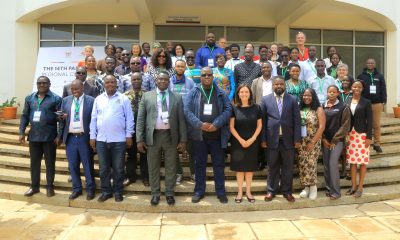

Harmonizing Africa’s Future through Musical Arts Education
-
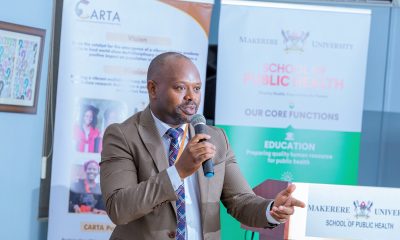

CARTA Focal Person Dr. Isunju Appointed to MakPress Editorial Board
-
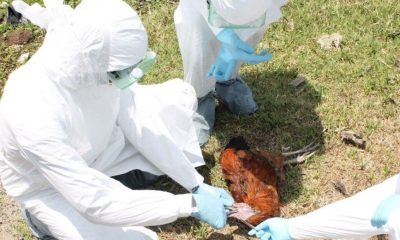

Advancing Regional Health Priorities Through the CARTA Research Hubs
Health
Call for Abstracts: Digital Health Africa 2025
Published
3 days agoon
July 2, 2025By
Mak Editor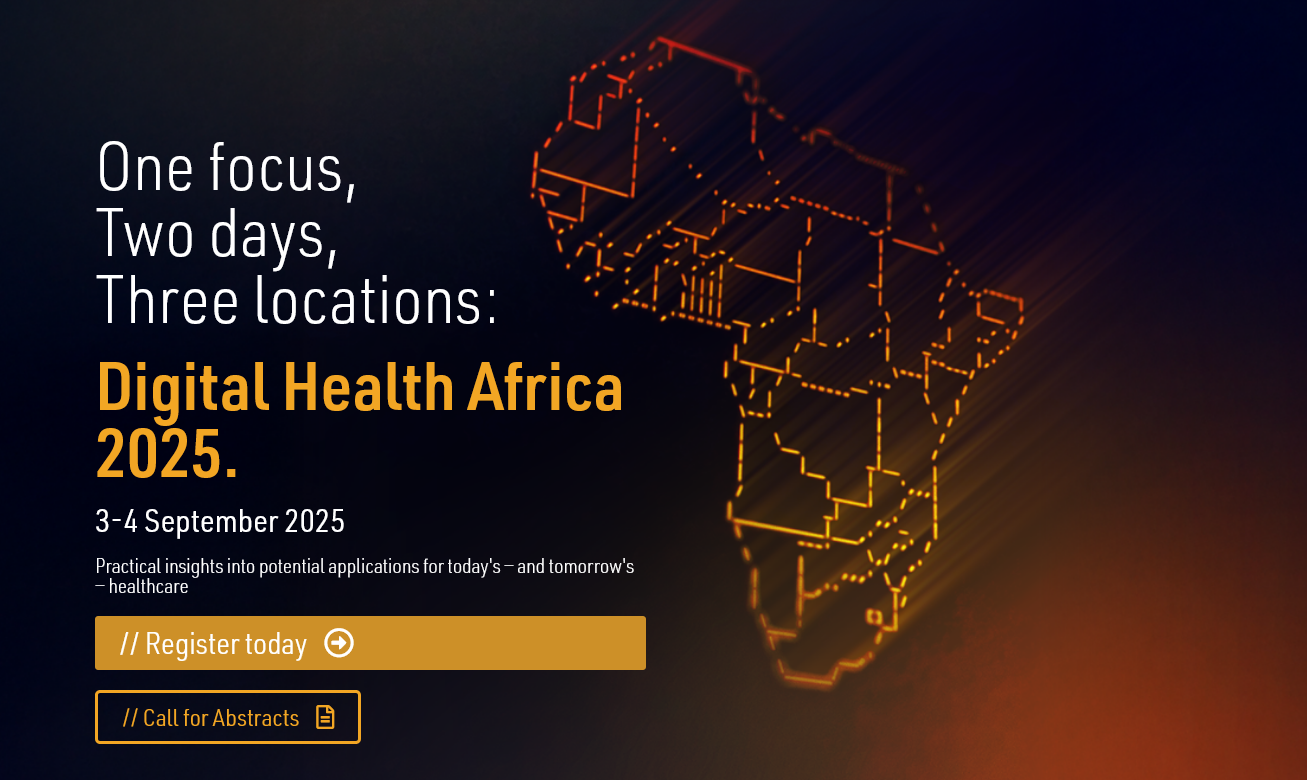
The Digital Health Africa 2025 Conference will provide practical insights in the potential applications of digital technologies, using maternal and child health, as important examples. Topics of interest will include patient registries, safety signals, vaccine use in pregnancy/breastfeeding, labelling of vaccines in pregnancy, emerging infections and antibiotic resistance, telemedicine, pharmacometric modelling, precision medicine, medicines regulation, ethical and legal aspects, and capability enhancement.
Applying an integrated multi-site face-to-face and remote format, this hybrid Conference will use digital tools to allow delegates and speakers from three different regions, South Africa, Uganda and Germany, as well as fully virtual participants to engage with one another. This will offer a nexus for collaboration and networking to promote partnerships among local and international stakeholders as well as capacity building for young scientists. Delegates will have the opportunity to engage with experts from industry, academia, healthcare providers, government and regulatory agencies as well as patient representatives to learn from one another and to gain valuable insights into the latest trends and best practices in digital health.
Abstracts should fit into one of these categories:
- Maternal and Child Health (MCH) & Digital Innovation
- Infectious Diseases & Antimicrobial Resistance (AMR)
- Digital Health Systems & Scaling
- Governance, Data Management & Interoperability
- Artificial Intelligence in Health & Research
- Pharmacometrics & Digital Tools
- Case Studies & Lessons Learned
- Cross-cutting & Strategic Perspectives
Submission deadline: 31st July 2025.
Accepted abstracts will be presented as interactive posters:
- a physical poster presentation at one of the conference sites
- an e-poster (digital version of your physical poster for sharing online)
- a 3-minute recorded presentation to accompany the poster.
Presenters with accepted posters will be offered complementary conference registration.
Submit your poster abstract here: https://forms.gle/aXYHeZSwX2EhEUas5
Health
Emorimor Calls for Makerere to Upgrade Parenting Course
Published
5 days agoon
June 30, 2025By
Zaam Ssali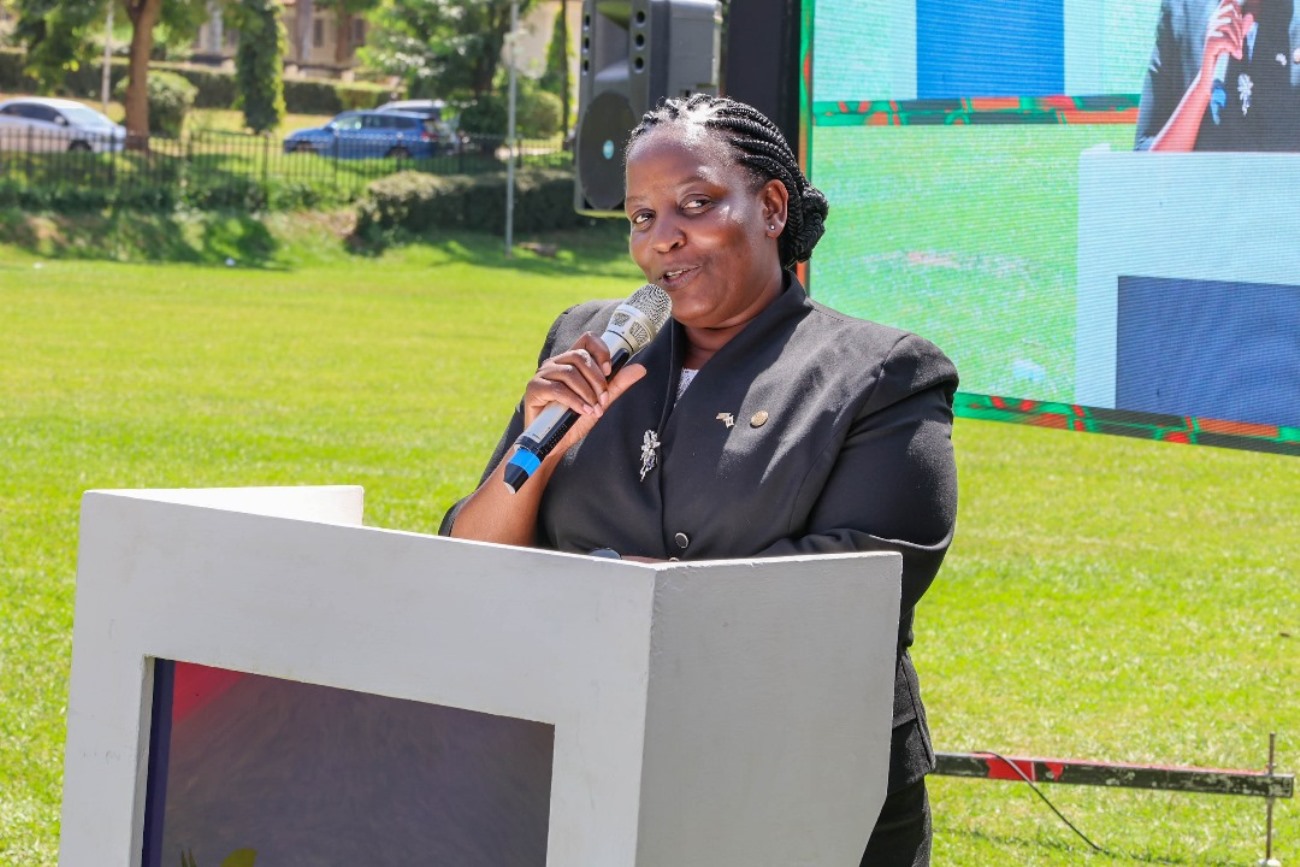
The Iteso Cultural Leader, His Highness Emorimor Papa Paul Sande Emolot, has called on Makerere University to elevate the Science of Designing, Adaptation, and Implementation of Evidence-Based Parenting Interventions course into a fully-fledged programme. This, he argued, would strengthen the capacity of practitioners implementing parenting interventions across Uganda.
Speaking at a graduation ceremony held on 11th June 2025 at Makerere University where 35 practitioners completed the 12-week course, Emorimor Papa Emolot emphasized the transformative power of effective parenting. He urged aspiring parents and advocates of the Parenting for Respectability model to enroll in the course.
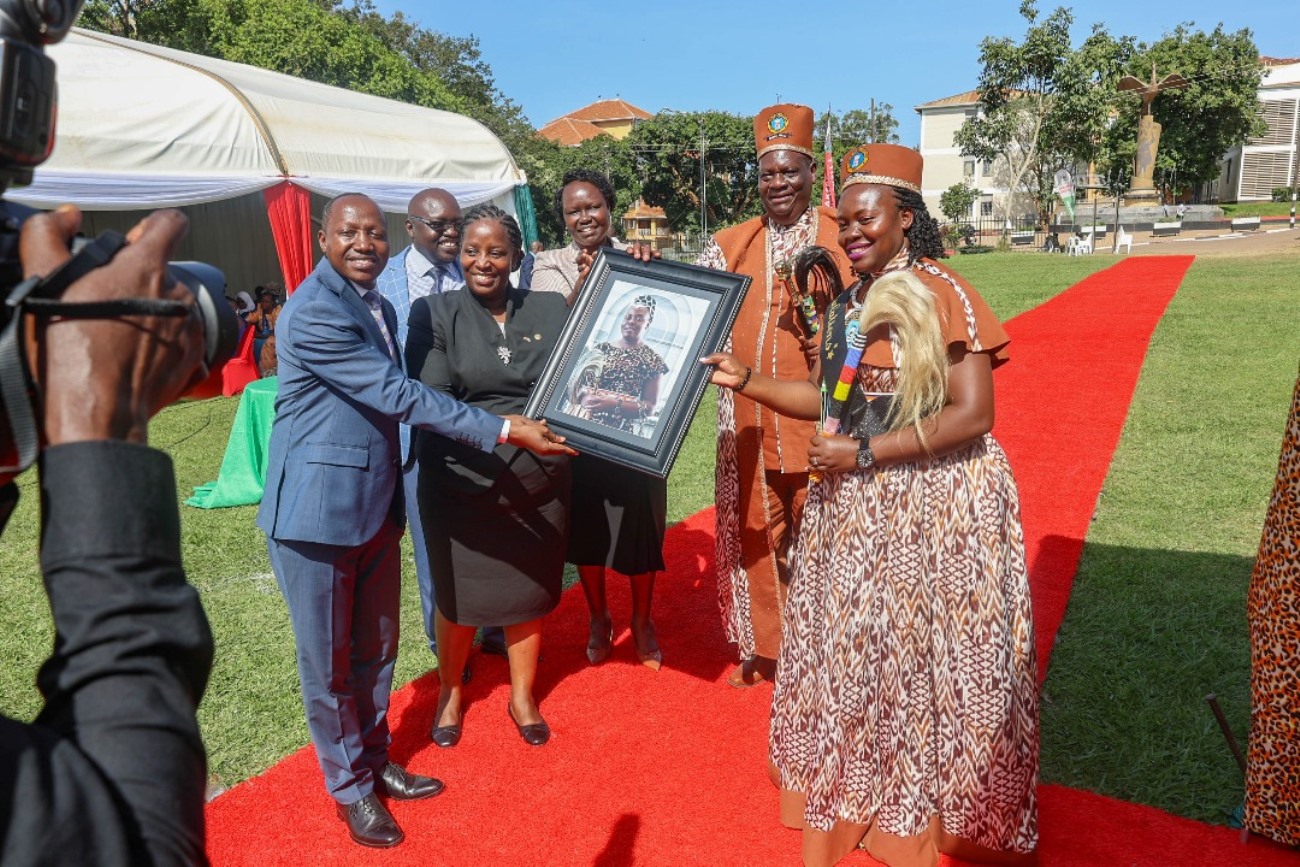
Citing the impact in his own sub-county and village, the cultural leader revealed that over 800 families had already benefited from the programme.
“We now see peace and love in homes where there was once conflict. Without good parenting, you risk raising animals instead of children,” he passionately stated.
He praised the course for equipping practitioners, policymakers, and researchers with the skills needed to design culturally sensitive, evidence-based parenting interventions tailored to Uganda’s context. Among the notable graduates was Her Royal Majesty Juliet Among Emolot Atomeileng Akaliat Toto, who reaffirmed her commitment to advancing family-strengthening initiatives using the skills and knowledge acquired.
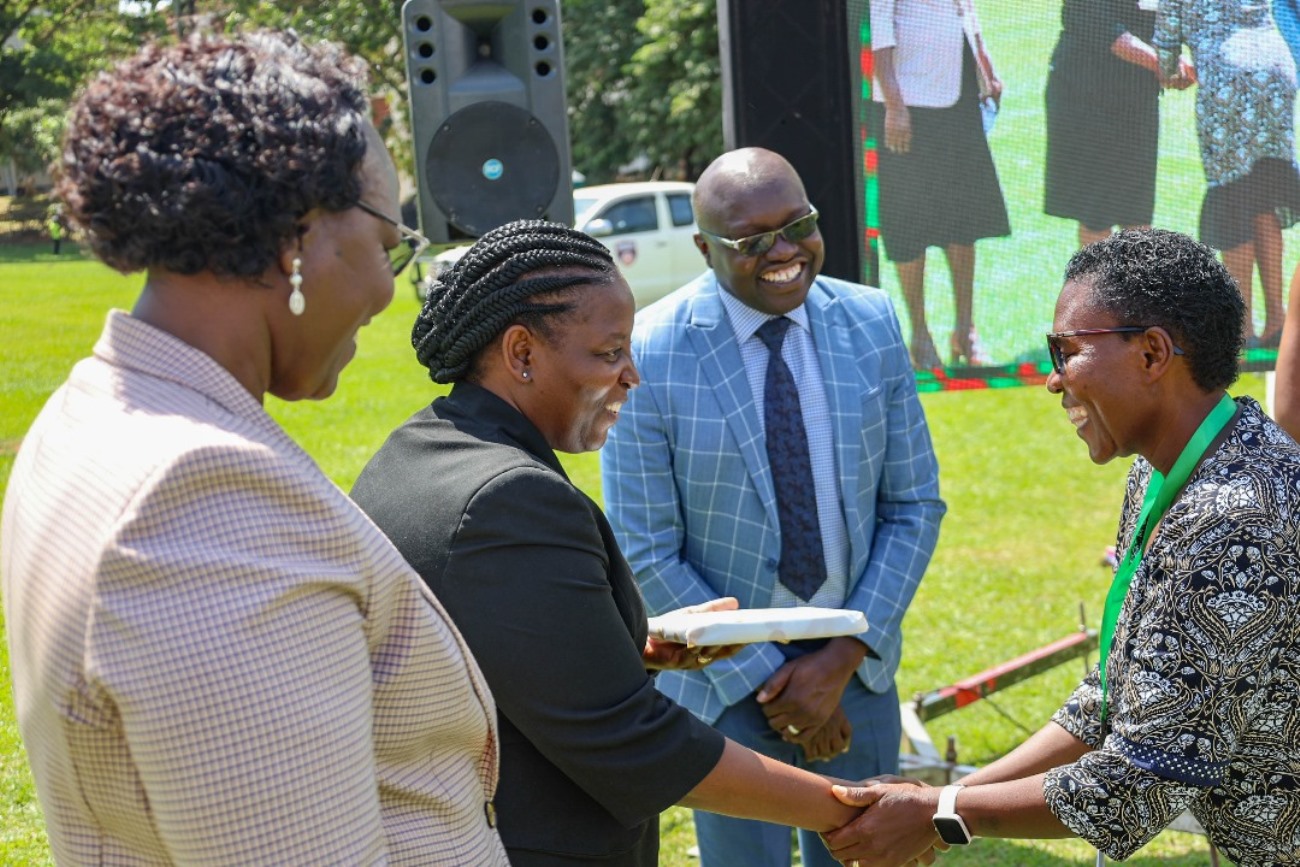
Dr. Godfrey Siu, Senior Lecturer and Course Leader at Makerere University, described the course as a timely intervention. During this remarks, Dr. Siu described the event as a significant milestone in advancing the field of evidence based parenting intervention and family strengthening in Uganda.
“This course is meant to empower you as practitioners, policy makers and all those involved in development and implementation of parenting work. It provides both theoretical knowledge and practical tools essential for developing high quality interventions”, Dr. Siu noted. He urged the pioneer group to carry forward the expertise as champions of designing, adaptation and implementation of evidence parenting interventions.
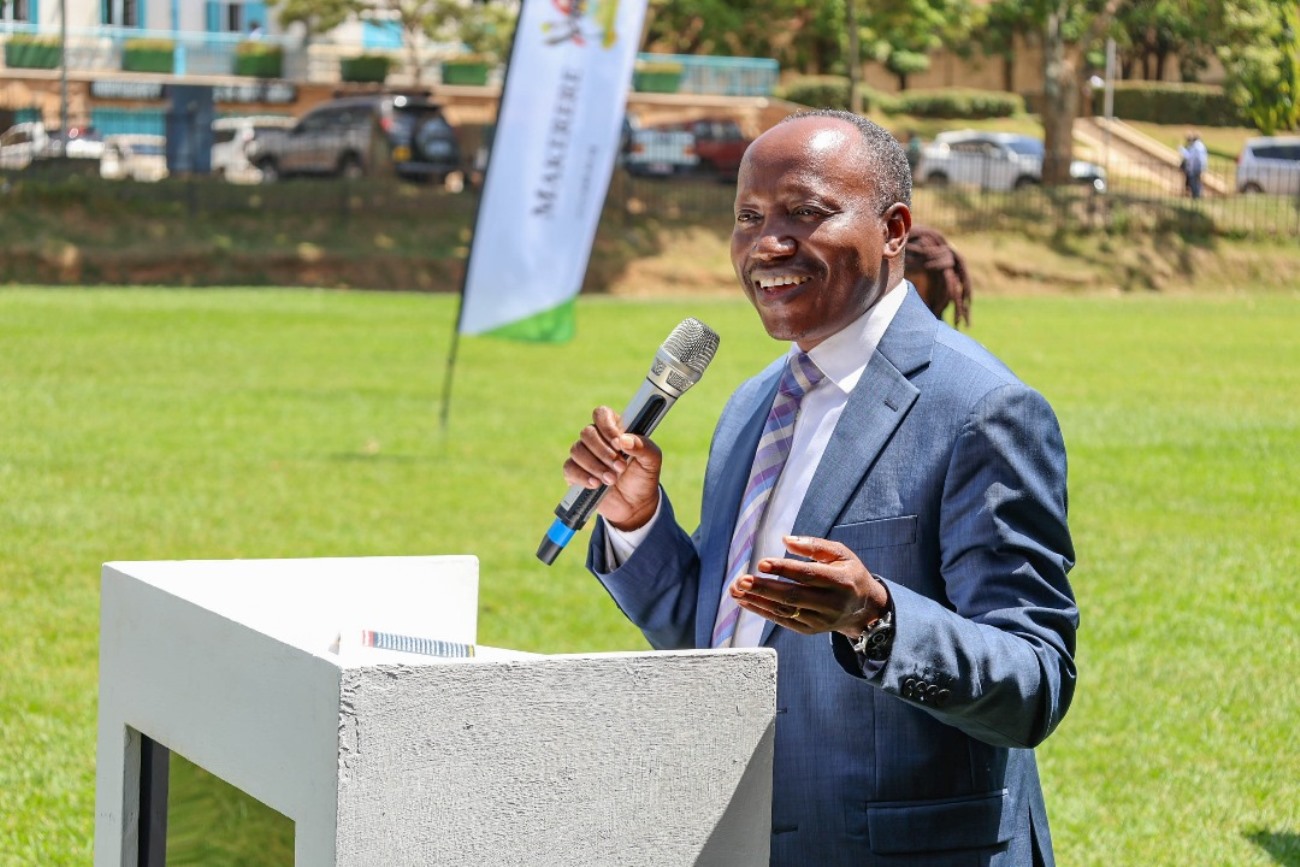
Representing the Permanent Secretary of the Ministry of Gender, Labour and Social Development, Dr. Aggrey David Kibenge, Juliana Naumo, Commissioner for Culture and Family Affairs, said the course supports the government’s agenda to address negative social outcomes affecting families.
“By grounding parenting in research, harmonizing policy with practice, and advocating for equity, we will ensure no family is left behind,” she said. “Cross-sectoral collaboration is key to unlocking transformative change.”
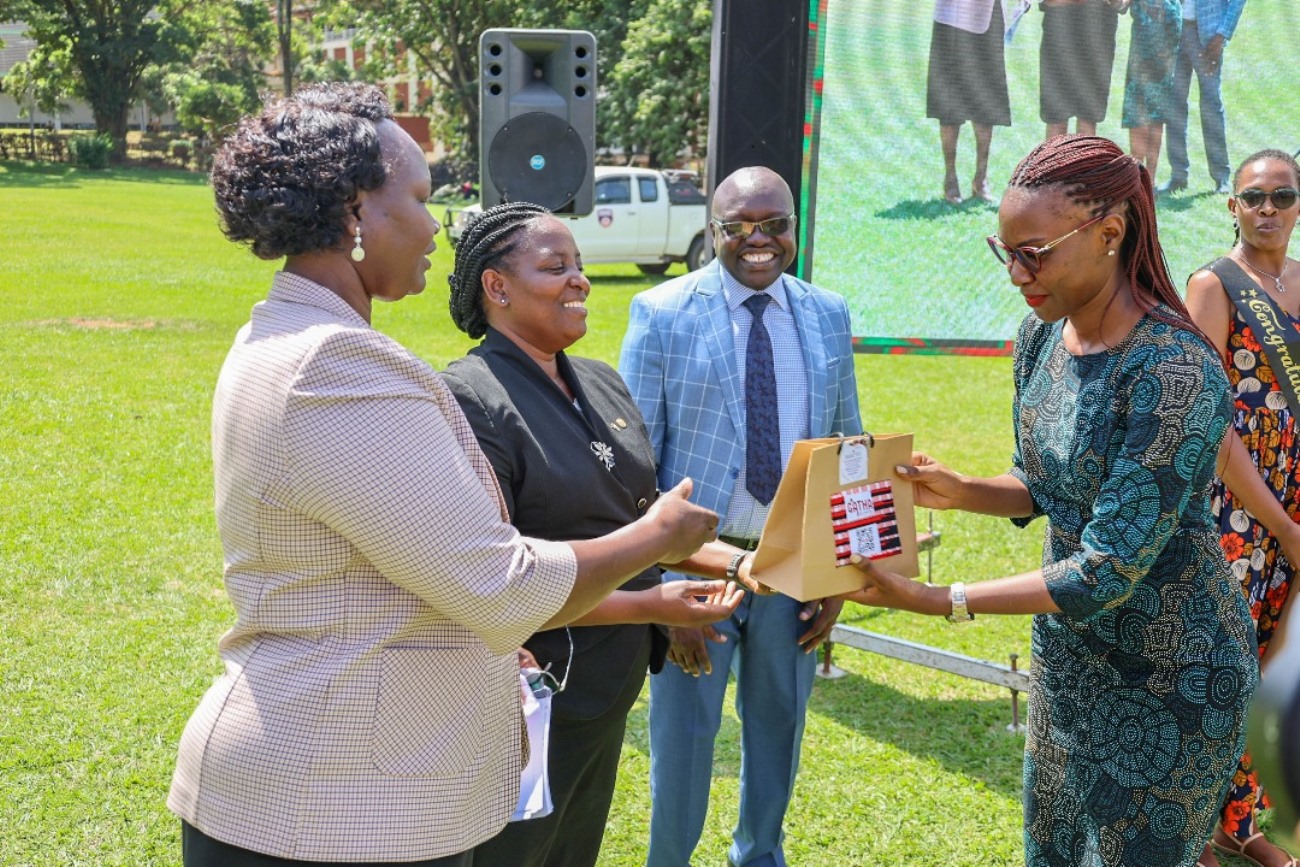
Ms. Naumo highlighted the government’s commitment—both technical and financial—to support outstanding student projects from the course. She stressed the importance of equipping professionals with the skills to bridge gaps between research and practice for consistent, high-quality parenting support across Uganda. While delivering the Vice chancellors speech by Dr. Helen Nambalirwa, Principal of the CHUSS, Prof. Barnabas Nawangwe commended the graduates as a beacon of hope.
“At a time when parenting faces challenges like digital distractions, changing societal norms, and a rising mental health crisis, Makerere reaffirms its support for interventions that drive the societal transformation we desire,” Nawangwe stated.
Prof. Richard Idro, Deputy Principal of the College of Health Sciences, acknowledged the growing parenting challenges in Uganda and the region, adding that the course was a major step towards standardizing parenting interventions nationwide.

He applauded the Child Health and Development Centre (CHDC) for leading this paramount and critical initiative.
Mr. Hosea Katende, Course Administrator at CHDC, emphasized the importance of integrating systematic methods, ethical principles, robust evidence, and collaboration to create lasting impact in parenting.
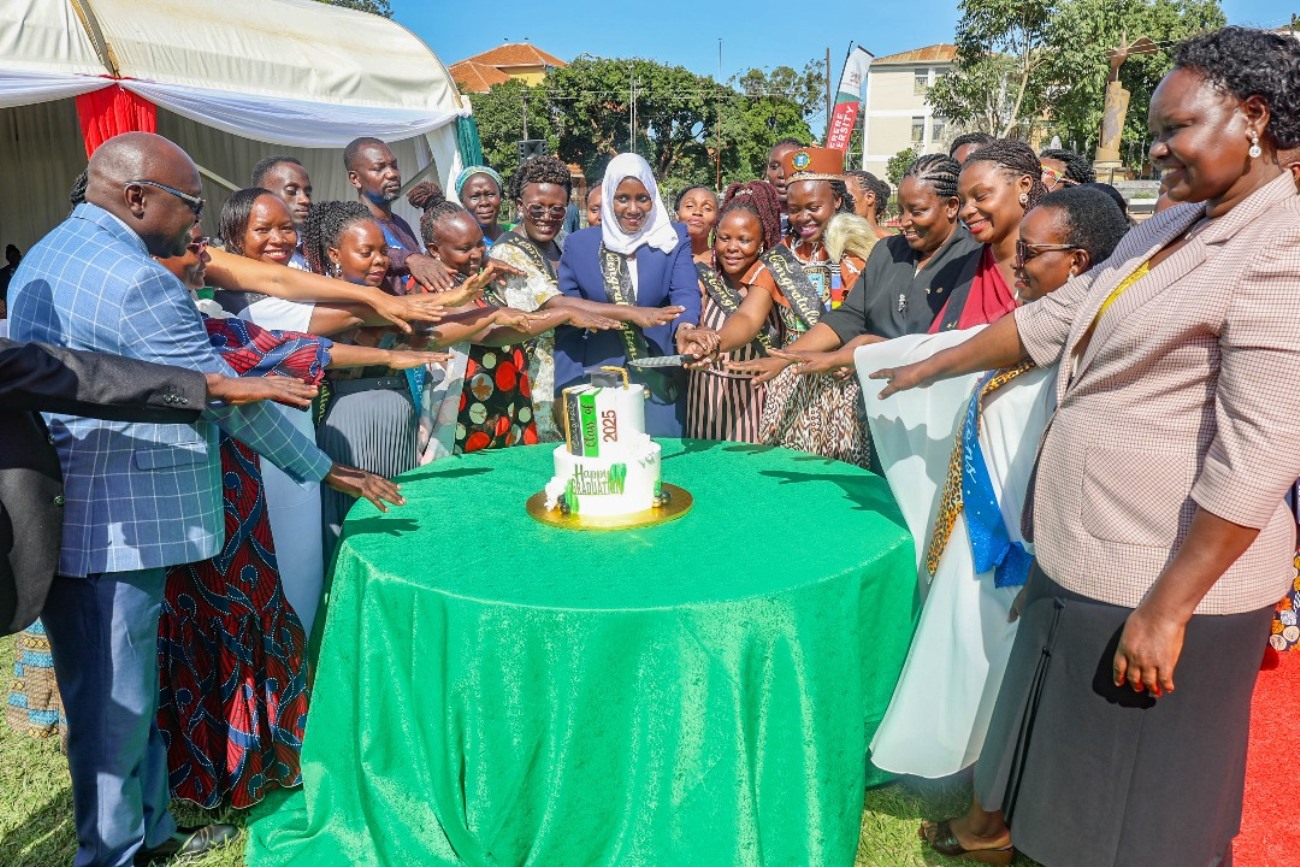
Dr. Aggrey Dhabangi, Lecturer at CHDC, representing Dr. Herbert Muyinda, Director of CHDC, acknowledged the contributions of partners such as the ELMA Foundation and Echidna Giving for their financial and capacity-building support. He also appreciated the Ministry of Gender, Labour and Social Development, among other stakeholders, for their technical guidance in the programme’s successful implementation.
Dr. Dhabangi extended gratitude to cultural institutions, especially the Kingdom of Teso, and acknowledged growing collaborations with other cultural institutions such as the Kingdom of Acholi, in the shared mission of building strong families as the foundation of Uganda’s future.
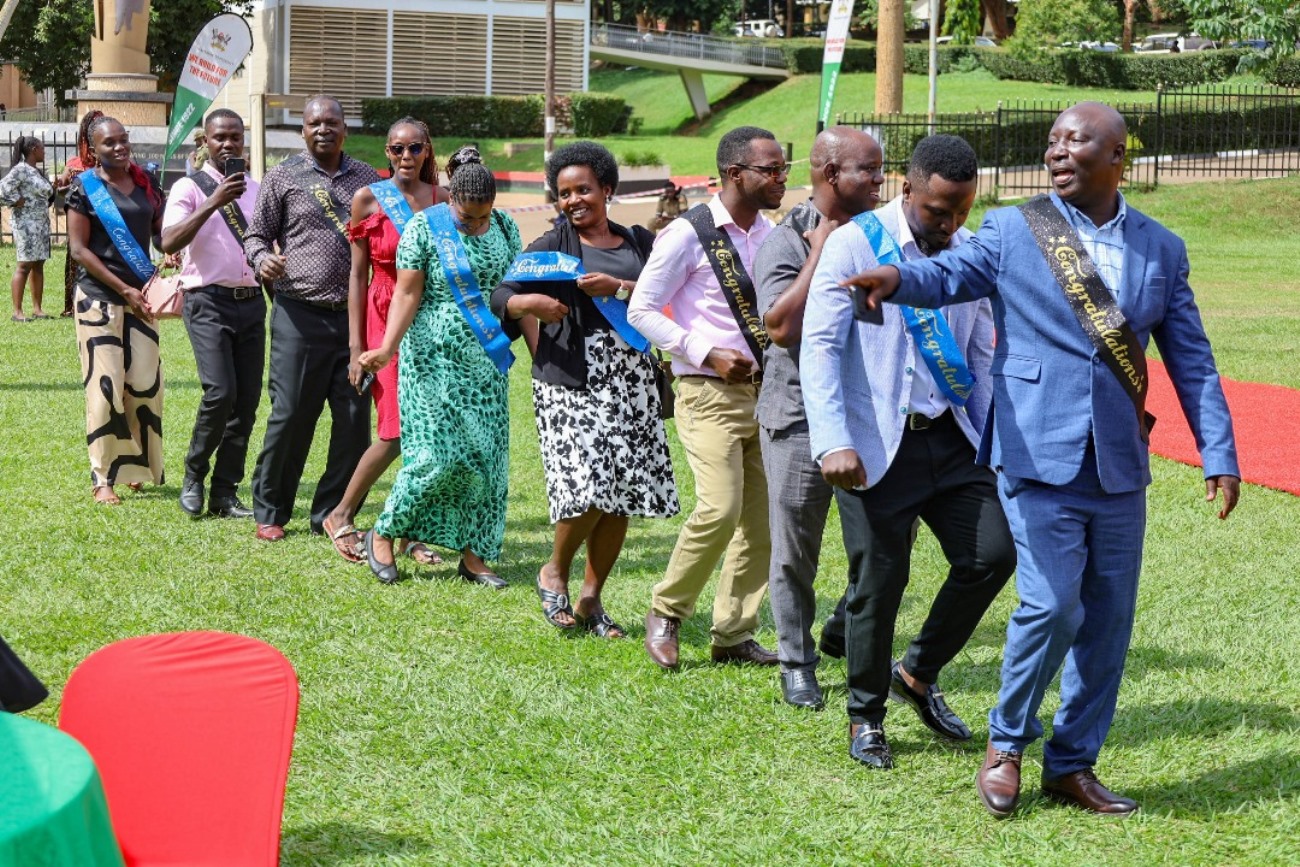
He extended his heartfelt gratitude to cultural institutions, especially the Kingdom of Teso, and others kingdoms such as the Kingdom of Acholi, in building Uganda’s future through creating strong families. Nuruh Mbalyowere, a Rehabilitation and Reintegration Officer with the Uganda Prisons Service, was honored for developing the best parenting intervention titled “Parenting Behind Prison Bars.” She expressed her intention to apply the knowledge gained both at home and in her workplace.
Health
MakSPH, DJC Launch Short Course on Health Communication
Published
2 weeks agoon
June 20, 2025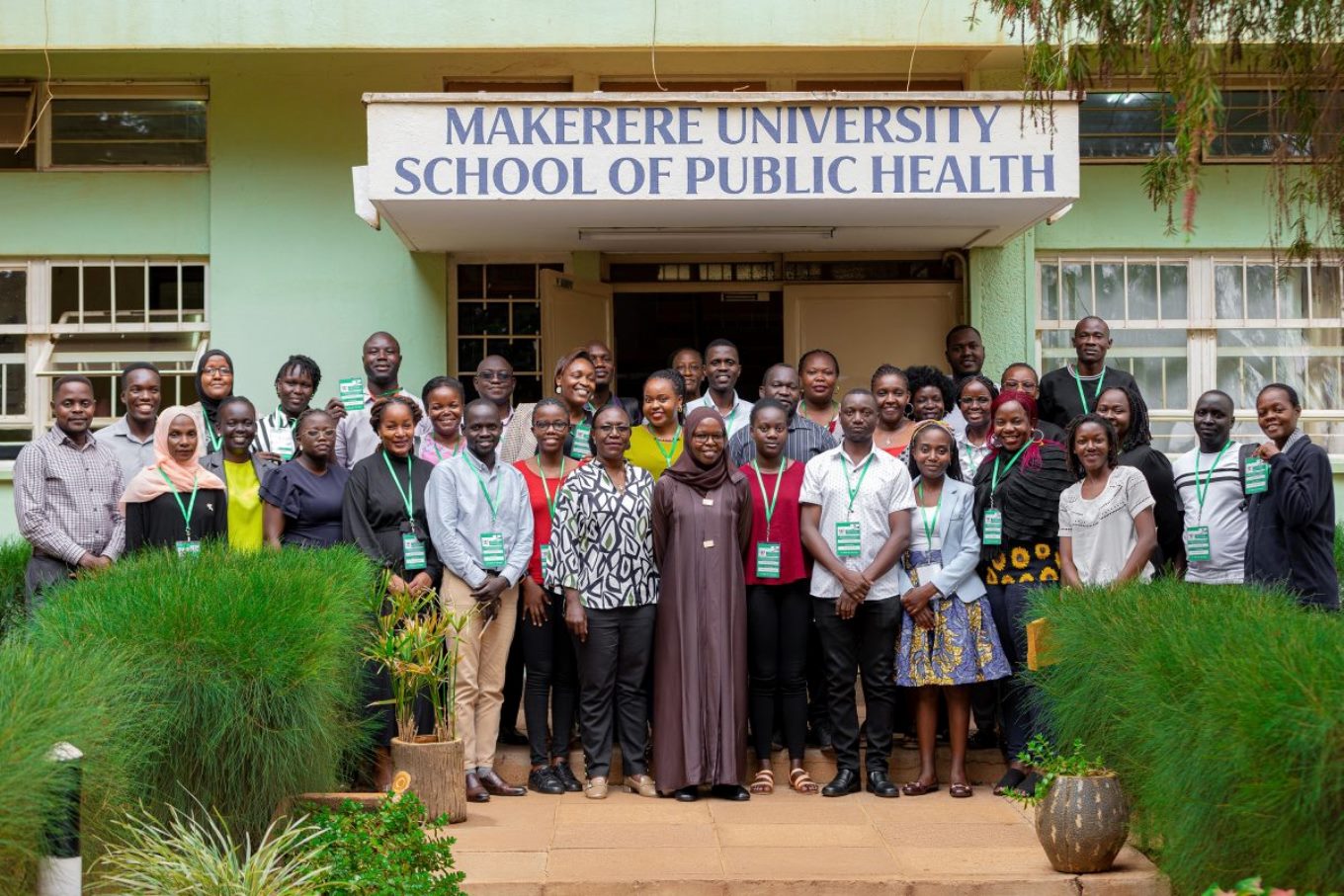
By Okeya John and Primrose Nabankema
The intensive one-month course, running for the first time from June 5 to July 24, 2025, is jointly offered by Makerere University School of Public Health (MakSPH)’s Department of Community Health and Behavioural Sciences (CHBS) and the Department of Journalism and Communication (DJC) at the School of Languages, Literature, and Communication (SLLC), co-designed in 2024 with support from the Rockefeller Foundation through Amref Health Africa.
It seeks to equip healthcare providers at the community level, public health and environmental health practitioners, communication specialists, health educators, community development officers, social scientists, and policy makers, among others, with strategic communication skills to improve public health messaging, strengthen community engagement, and support evidence-based interventions, ultimately empowering participants to effectively engage communities and improve population health outcomes across Uganda and the region.
Launching the course, the heads of the Department of Journalism and Communication and the Department of Community Health and Behavioural Sciences noted that participants who complete the short course will gain practical tools to influence behaviour change, build trust, and deliver timely, accurate, and relevant health information to the communities they serve. The first cohort attracted more than 60 applicants, with 36 reporting for the opening in-person session on June 5, 2025, at MakSPH in Mulago. Between now and July, participants will undergo a hands-on, multidisciplinary learning experience within the Certificate in Health Communication and Community Engagement program, which combines theory and practice.
Among the participants in the first cohort of the certificate course, designed as a pilot for the anticipated Master of Health Promotion and Communication to be jointly offered by the two departments at Makerere University, is Ms. Maureen Kisaakye, a medical laboratory technologist specialising in microbiology and antimicrobial resistance (AMR), and currently pursuing a Master’s in Immunology and Clinical Microbiology at Makerere. She is driven by a passion to help reverse the rising tide of AMR, a growing global health threat where drugs that once worked are no longer effective. Kisaakye is particularly concerned about common infections, like urinary tract infections, becoming increasingly resistant and harder to treat.
“I enrolled in this course because I’m an advocate against antimicrobial resistance, and it came at a time when I needed to deepen my knowledge on how to implement our projects more effectively and engage with communities. The experience has broadened my understanding of AMR and its impact on society, and strengthened my passion for community-driven health initiatives and advocacy,” Kisaakye said, explaining why she enrolled for the short course.
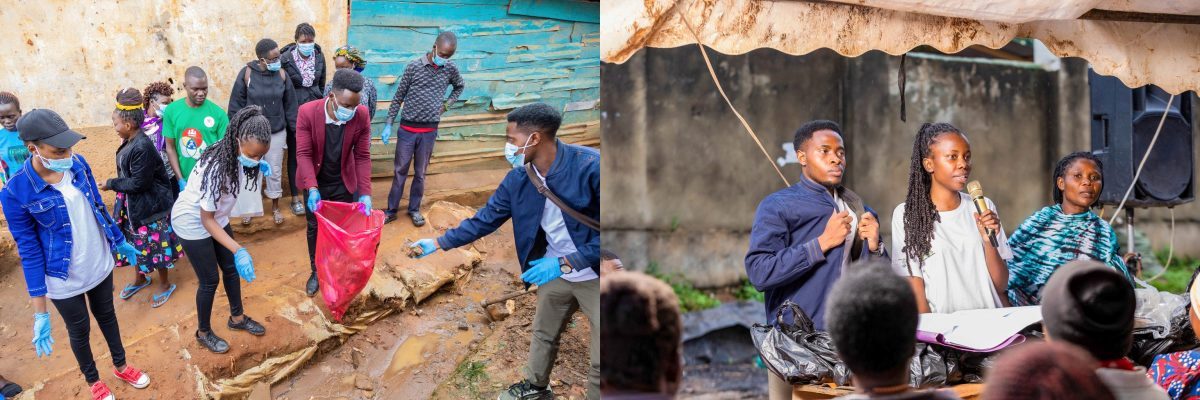
Kisaakye’s work in antimicrobial resistance extends beyond the lab. Having earned her degree in medical laboratory science from Mbarara University of Science and Technology, she founded Impala Tech Research in 2024 to drive impact and save lives. She has led grassroots AMR campaigns that integrate antimicrobial stewardship with water, sanitation, and hygiene (WASH) education in underserved urban communities, including the informal settlements in Kampala. She also has since designed peer-led initiatives that empower university students as AMR Champions, building a network of informed youth advocates. Kisaakye believes the health communication course will sharpen her ability to design and deliver impactful, community-centred interventions in response to the growing threat of drug resistance.
“The department collaborates with many partners within and beyond the University, including the School of Public Health, where we are working to develop the subfield of health communication and promotion. Our goal is to train specialists in this area and build a community of practice, something we have each been doing in our own spaces. There’s a lot of work ahead, and COVID-19 showed us just how urgently we need a generation trained to do this kind of work, and to do it very well,” said Dr. Aisha Nakiwala, Head of the Department of Journalism and Communication, during the opening of the short course on June 5.
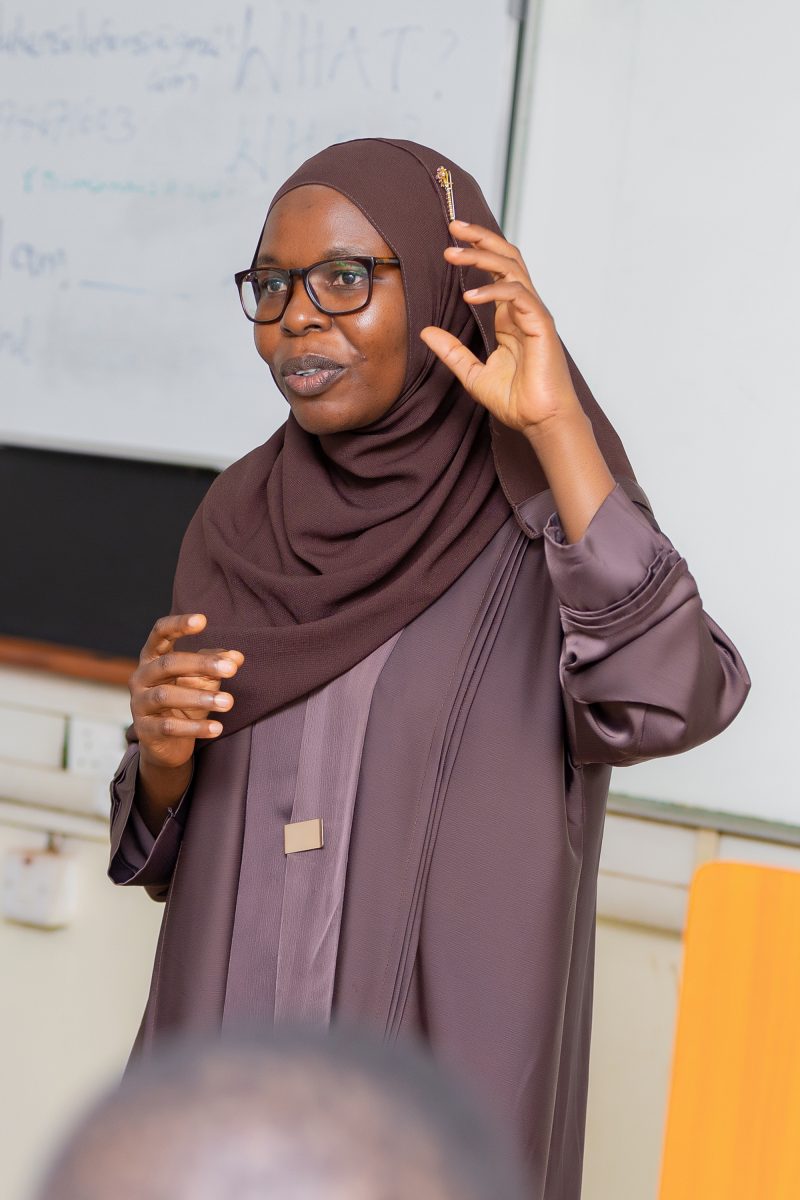
She assured participants they were in good hands and underscored the importance of the partnership between the Department of Journalism and Communication and the School of Public Health, describing it as a vital collaboration that brings together strategic communication and public health expertise. This dynamic, multidisciplinary approach, she noted, is essential to developing practical solutions that empower communities, strengthen health systems, and ultimately improve livelihoods.
The course offers a hands-on, multidisciplinary learning experience, with participants intended to explore key modules including Health Communication and Promotion, Risk Communication, Smart Advocacy, Community Mapping, Community Mobilisation and Empowerment, and Strategies for Community Engagement. The course combines theory with real-world application, and its assessment includes a field-based project and a final exam.
“You are our first cohort. We are seeing the fruits of our efforts in bringing this short course to life. It was born out of a joint initiative to develop a Master’s programme in Health Promotion and Communication,” said Dr. Christine Nalwadda, Head of the Department of Community Health and Behavioural Sciences. “We carried out extensive consultations with our different key stakeholders during the process and discovered a real need for such a course. It was the stakeholders who even named it; this course name didn’t come from us.”
For Kisaakye, by the end of the course in July, she hopes to have sharpened her skills in health promotion and strategic communication, particularly in crafting targeted messages that help individuals and communities effectively respond to threats such as antimicrobial resistance. She also aims to gain practical experience in designing, implementing, and evaluating community health initiatives that can strengthen her advocacy and drive lasting impact.
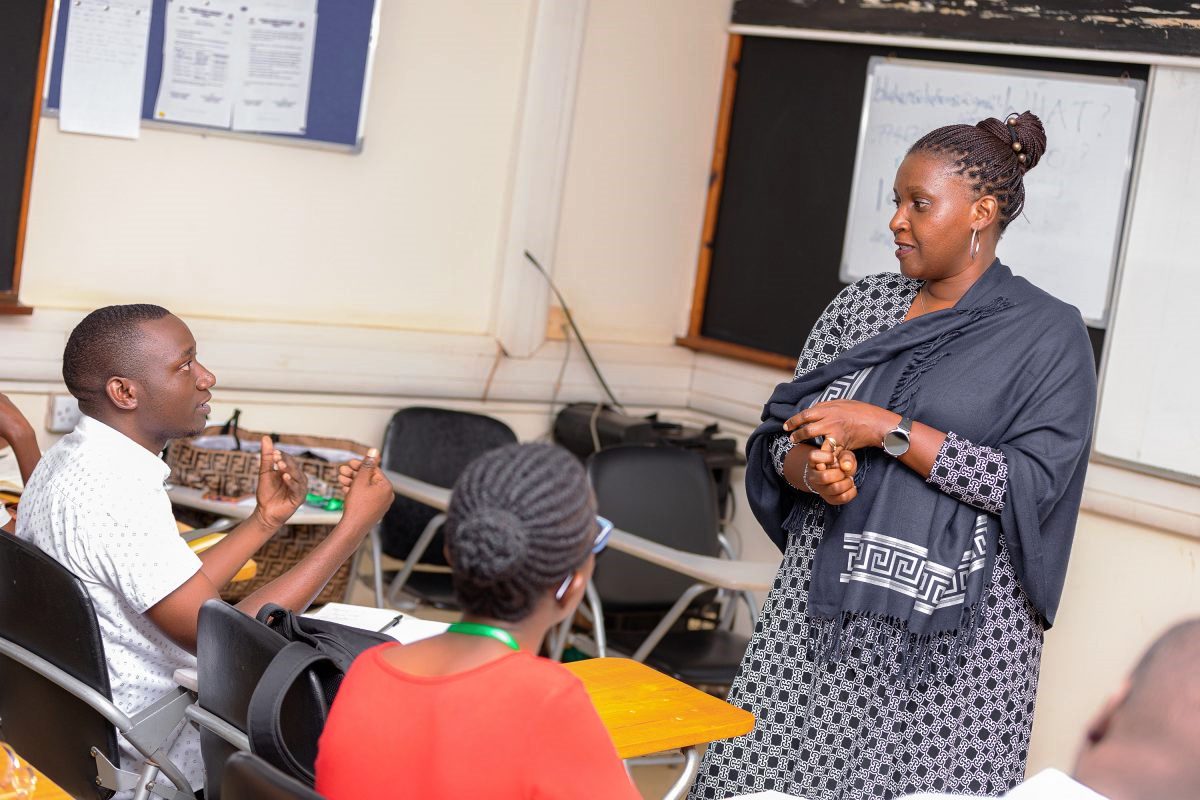
Trending
-

 Education1 day ago
Education1 day agoAdmission List to Bachelor of Education External (BED) 2025/26 -Private Sponsorship
-

 General1 week ago
General1 week agoMature Age Scheme Exam Results for 2025/2026
-

 General2 weeks ago
General2 weeks agoFreshers’ Joining Instructions 2025/2026
-

 General4 days ago
General4 days agoUndergraduate Admission List Self Sponsorship Scheme 2025/2026
-

 General2 weeks ago
General2 weeks agoMastercard Foundation Board pays its inaugural visit to Makerere University
